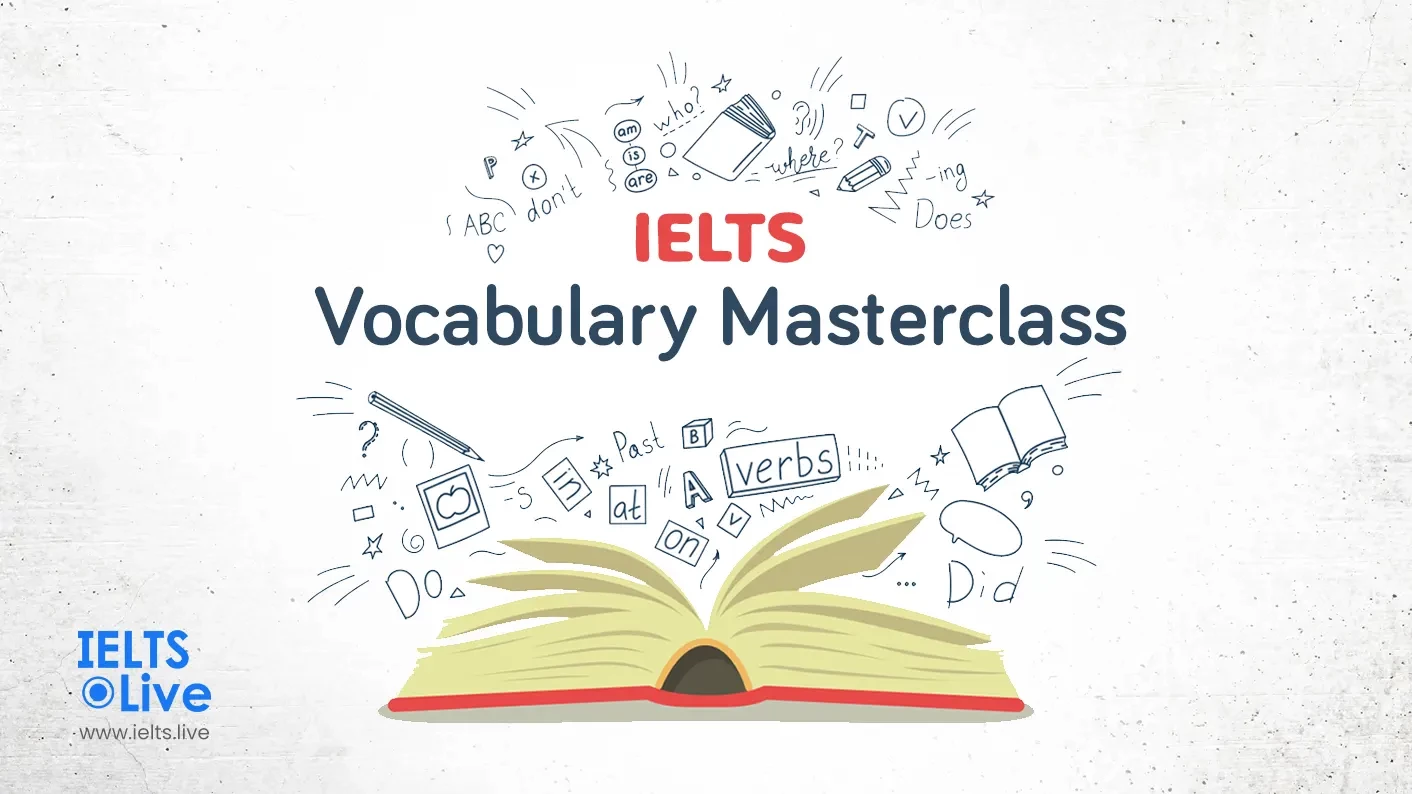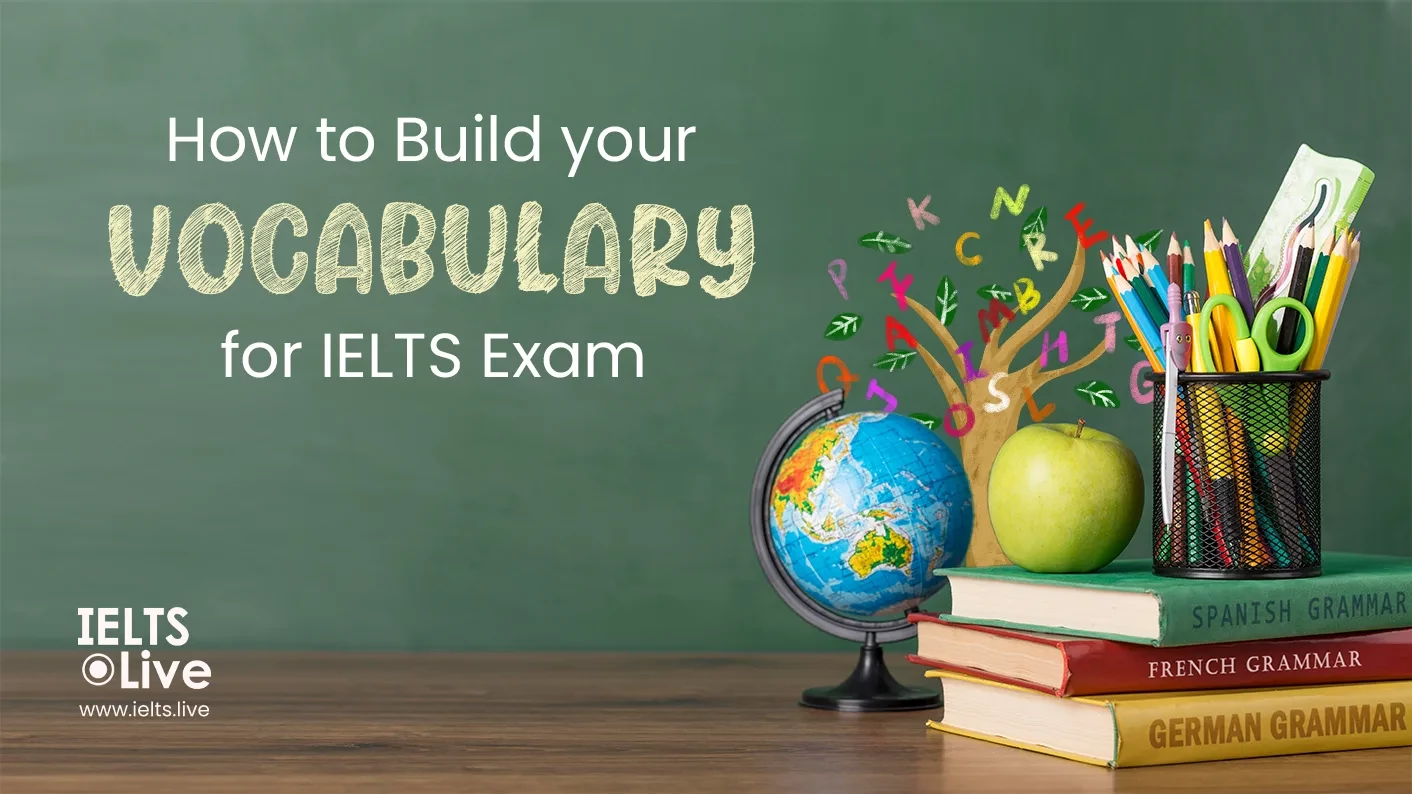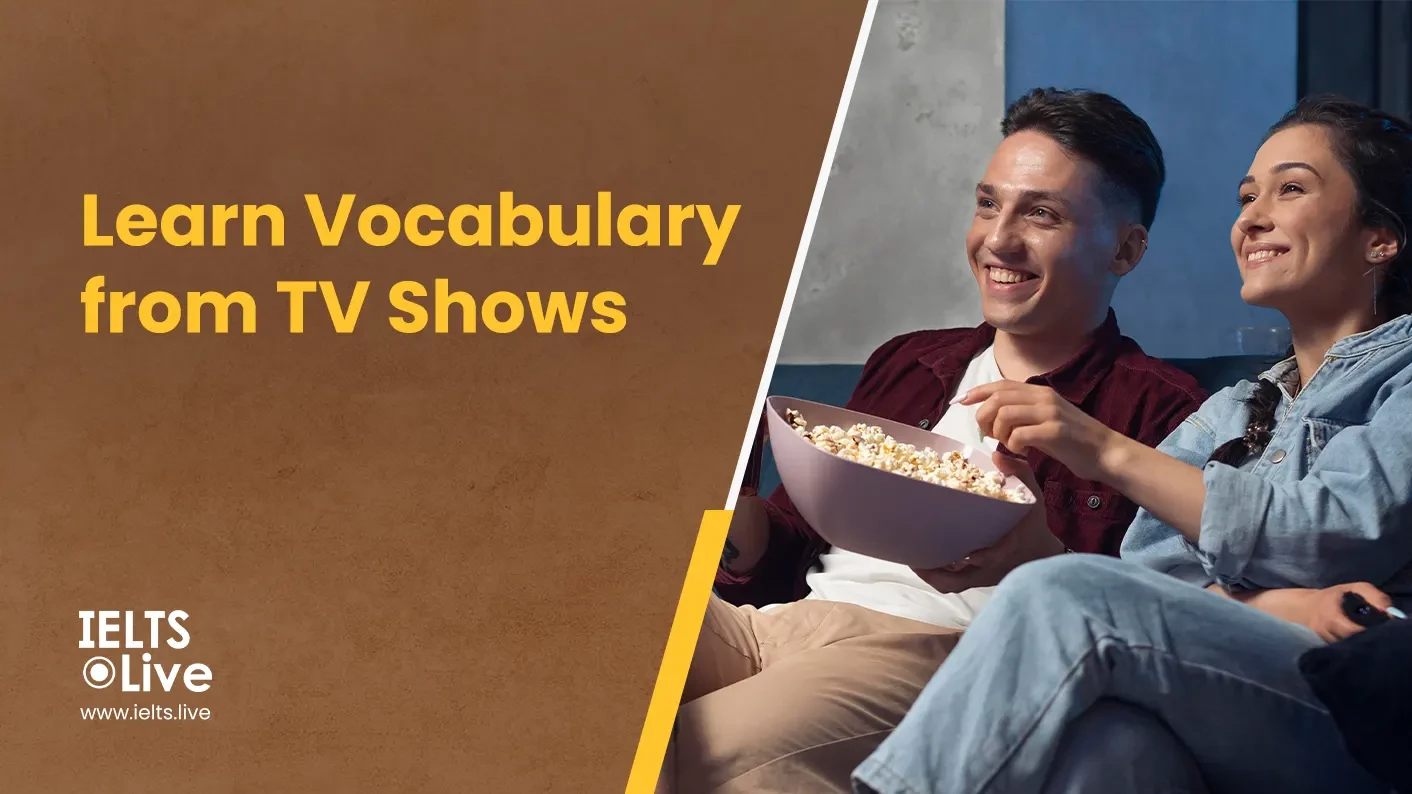
Welcome to the IELTS Vocabulary Masterclass! As a promising IELTS applicant, you are aware of how important vocabulary is to score well on the test. A solid vocabulary foundation is essential for clear communication since it increases reading and listening comprehension as well as writing and speaking fluency.
We will cover 10 important topics in this extensive masterclass, giving you definitions and examples to help you build your vocabulary and ace the IELTS.
A rich vocabulary is essential for accurately and precisely expressing ourselves. It enables us to effectively communicate our thoughts, ideas, and emotions. A diverse vocabulary usage on the IELTS exam demonstrates your language proficiency, impresses the examiners, and contributes significantly to your overall score.
You may also like: Grammar for IELTS Preparation: The Secret Weapon To Achieve Your Dream Score!
Education:
Pedagogy: The method or practice of teaching, especially in formal education settings.
Example: The professor's innovative pedagogy engaged students and facilitated their learning.
Curriculum: The subjects, topics, and learning experiences included in an educational program.
Example: The school's curriculum emphasizes a well-rounded education, including arts, sciences, and humanities.
Literacy: The ability to read and write effectively.
Example: Promoting literacy programs is essential for empowering individuals and fostering community development.
Tutor: A person who provides individualized instruction and guidance to help students improve their academic skills.
Example: The tutor helped the student understand complex math concepts and improve their grades.
Critical thinking: The ability to analyze, evaluate, and interpret information or situations in a logical and thoughtful manner.
Example: Developing critical thinking skills enables students to approach problems with a well-reasoned perspective.
Health and Hygiene:
Wellness: The state of being in good physical and mental health.
Example: Regular exercise and a balanced diet are essential for maintaining overall wellness.
Ailment: A minor health problem or illness.
Example: The common cold is a common ailment during the winter season.
Immunity: The ability of the body to resist or fight off diseases.
Example: Vaccinations help boost the body's immunity against certain diseases.
Nutrition: The process of providing the body with the necessary nutrients for growth and health.
Example: A well-balanced diet ensures proper nutrition and supports overall well-being.
Sedentary lifestyle: A way of living characterized by a lack of physical activity.
Example: Sitting at a desk for long hours and lack of exercise contribute to a sedentary lifestyle.
Technology:
Innovation: The introduction of new ideas, methods, or technologies.
Example: The constant drive for innovation leads to advancements in various industries.
Automation: The use of technology to perform tasks or processes with minimal human intervention.
Example: Many manufacturing companies have implemented automation to improve productivity.
Artificial Intelligence: The development of computer systems capable of performing tasks that typically require human intelligence.
Example: Virtual assistants like Siri and Alexa utilize artificial intelligence to provide helpful information.
Virtual Reality: A simulated experience that can be similar to or completely different from the real world.
Example: Virtual reality technology allows users to immerse themselves in a computer-generated environment.
Cybersecurity: Measures taken to protect computer systems and data from unauthorized access or attacks.
Example: Strong passwords and encryption are essential for ensuring cybersecurity.
The Physical World:
Geography: The study of the Earth's physical features, climate, and human population.
Example: Studying geography helps us understand the diverse landscapes and cultures around the world.
Terrain: The physical features of an area, including its elevation, slopes, and surface characteristics.
Example: The hilly terrain made hiking a challenging but rewarding experience.
Climate: The long-term weather patterns characteristic of a region.
Example: The tropical climate of the Caribbean attracts tourists seeking warm, sunny vacations.
Landscape: The visible features of an area, including natural and human-made elements.
Example: The picturesque landscape of rolling hills and lush green valleys took our breath away.
Urbanization: The process of a population shifting from rural to urban areas.
Example: Rapid urbanization has led to the development of bustling cities worldwide.
The Natural World:
Environment: The surroundings or conditions in which a person, animal, or plant lives.
Example: Protecting the environment is crucial for the preservation of biodiversity.
Conservation: The act of protecting and preserving natural resources and habitats.
Example: National parks play a vital role in the conservation of endangered species and their natural habitats.
Wildlife: Animals and plants that live and thrive in their natural habitats.
Example: The African savannah is home to a diverse range of wildlife, including lions, giraffes, and elephants.
Habitat: The natural environment in which a specific species lives and obtains the necessary resources for survival.
Example: Coral reefs provide a unique habitat for a wide variety of marine organisms.
Ecosystem: A community of living organisms and their interactions with the non-living components of their environment.
Example: The rainforest ecosystem is characterized by high biodiversity and intricate ecological relationships.
The Media:
Journalism: The profession of gathering, analyzing, and presenting news and information to the public.
Example: Responsible journalism plays a critical role in keeping the public informed and holding those in power accountable.
Censorship: The act of suppressing or restricting access to certain information, ideas, or media.
Example: Strict censorship policies in some countries limit freedom of speech and expression.
Propaganda: Information, often biased or misleading, used to promote a particular viewpoint or agenda.
Example: During wartime, governments may use propaganda to shape public opinion and gain support for their cause.
Bias: Prejudice or favoritism toward a particular group, individual, or idea.
Example: It's important for journalists to strive for objectivity and avoid bias in their reporting.
Media literacy: The ability to access, analyze, evaluate, and critically interpret media messages.
Example: Developing media literacy skills help individuals navigate the vast amount of information available in today's digital age.
Holiday and Traveling:
Wanderlust: A strong desire or impulse to explore and travel to new destinations.
Example: My wanderlust has led me to embark on adventures in various countries around the world.
Itinerary: A planned route or schedule for a trip or journey.
Example: We meticulously planned our itinerary to ensure we made the most of our time in each city.
Accommodation: A place to stay, such as a hotel, hostel, or vacation rental.
Example: We booked a cosy Airbnb for our stay in the city centre.
Excursion: A short trip or outing, usually for leisure or educational purposes.
Example: The school organized an excursion to the local museum to enhance students' learning experience.
Visa: An official document that grants permission to enter and stay in a foreign country.
Example: Make sure to check the visa requirements before travelling to a different country.
Energy and Natural Resources:
Sustainability: The practice of using resources in a way that meets present needs without compromising future generations' ability to meet their own needs.
Example: Renewable energy sources like solar and wind power contribute to sustainable development.
Renewable: Resources or energy derived from sources that can be naturally replenished.
Example: Solar energy is a renewable source that harnesses the power of the sun.
Fossil fuels: Non-renewable energy sources formed from the remains of ancient plants and animals.
Example: Oil, coal, and natural gas are examples of fossil fuels.
Conservation: The careful management and protection of natural resources to prevent depletion or loss.
Example: Water conservation is crucial for preserving this essential resource for future generations.
Carbon emissions: The release of carbon dioxide and other greenhouse gases into the atmosphere, contributing to climate change.
Example: Decreasing carbon emissions is necessary to mitigate the impact of climate change.
Friends and Family:
Companionship: The state of being a companion or friend to someone.
Example: The bond of companionship between friends provides support and happiness in life.
Kinship: The connection or relationship between family members.
Example: The sense of kinship among siblings is often strong, built through shared experiences and memories.
Upbringing: The care and education provided to a child during their formative years.
Example: A loving and nurturing upbringing lays the foundation for a child's development and future success.
Sibling: A brother or sister.
Example: Having siblings can be both challenging and rewarding, as they often become lifelong friends.
Generation: A group of individuals born and living at the same time.
Example: The younger generation often brings new perspectives and ideas to society.
Fashion and Shopping:
Style: A particular manner or way of doing or presenting things, often related to clothing and personal expression.
Example: She has a unique sense of style, always combining unexpected pieces to create fashionable outfits.
Trend: A general direction or pattern followed by a large group, often in fashion or popular culture.
Example: Animal prints were a popular trend in fashion last year.
Wardrobe: The collection of clothing and accessories that a person owns.
Example: She has a diverse wardrobe with options for every occasion.
Accessories: Items such as jewelry, bags, scarves, and belts that complement an outfit.
Example: The right accessories can elevate a simple outfit and add a touch of personality.
Designer: A person or brand that creates and produces high-quality, unique fashion items.
Example: Many celebrities wear clothing designed by renowned fashion designers.
Congratulations on completing our IELTS Vocabulary Masterclass! By expanding your vocabulary, you improve your communication skills and impress examiners with your language proficiency.
Remember to practice these new words on a regular basis and incorporate them into your daily conversations, reading, and writing. Vocabulary acquisition is an ongoing process, and you will continue to improve with dedication and perseverance.
Remember, the topics covered in this masterclass are only the tip of the iceberg. The English language has a large vocabulary for you to learn and explore. Accept the journey, and with each new word you learn, you'll get closer to your IELTS goals.
Best of luck on your IELTS journey, and may your broadened vocabulary open doors to new opportunities and greater language fluency!






0 COMMENTS